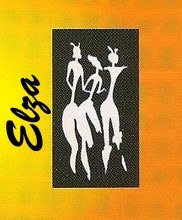
In my business I have taken quite a few risks. Even I shake my head in amazement sometimes at what I do. But what is life and how can change be made if one does not dare to risk?
I am always aware that my energy sets the tone for the whole team. If I am unhappy about something, whether business or personal, it seems to seep by osmosis into the energy of others. We are all sensitive to the people around us even though we are not always aware of it. Fortunately, I am quite the optimist and I very seldom find myself entertaining negative thoughts. I enjoy my work and my life.
One of the things my core team has had access to for the last 7 years is Instant Messaging. Big risk! Would it be used to chat with friends while work lay gathering dust? Not at all. In our case it has been an extremely successful change and we all like it. Phones are wonderful inventions but they can slurp up time like a dry sponge. IM keeps communicating short and its fun too.
I used to work at a place where the owner of the business could monitor our computer screens and see what we were doing at any given time. Do you think I felt like my employer trusted me? Of course not! Did I like working there? Of course not! Do people browse the internet or reply to personal emails during work time? Of course they do! Its not that they do….it is how much of it they do during work-time.
When I left the company the employer was keen to let me know that he had never trusted me. I thought: 'you do not trust anyone, not even yourself'. How you are, is how you think other people will be. If you cannot be trusted, then how can you trust? But more about the Paranoid Personality in the workplace at a later date.
Another big step was offering my staff to work 4/10 and choosing the day they would like to have off every week. I asked for everyone to play by the rules, report their hours not worked, to work 40 hours, to be in on time and to coordinate work so that nothing slipped through the cracks. I also said that it was a trial to see if we could apply this to our company and that even if just one of us didn’t take it seriously, we would go back to working 5 days a week. It took us 2 weeks to settle into our routine. Notorious late-comers suddenly came in on time, productivity soared and everyone loved it.
Now I am taking things a step further and have the same apprehensions as I have had every time. I have to be able to trust that everyone involved will be open, honest and play by the rules once again.
We are slowly going to try to work from home. It just so happens that in our industry this is possible. This may not always be the case, but it is worth looking into. I have worked from home at different stages of my career and have always liked it. My productivity is much higher than when I go into the office. I am a notorious late-comer. Working from home, I am early for work. I have to plan my week carefully to be able to get everything in, including time with my individual team members. We have quite a structured way of working already. Weekly planning schedules are in by Monday morning, reports are brief and come in promptly after a meeting has ended, and we inform each other what is going on, on our end.
It can only work if everyone in the team can handle it and has the discipline and sense of responsibility to accomplish it.
Do you suppose that the above risks have paid off in terms of a better workforce in the company? I assure you it has. Do we have enjoyment in our professional and personal lives? For certain. Do you think we form a solid block as a team. Yup, we do.
If you treat people as mature adults, you might discover that they are mature adults.
















